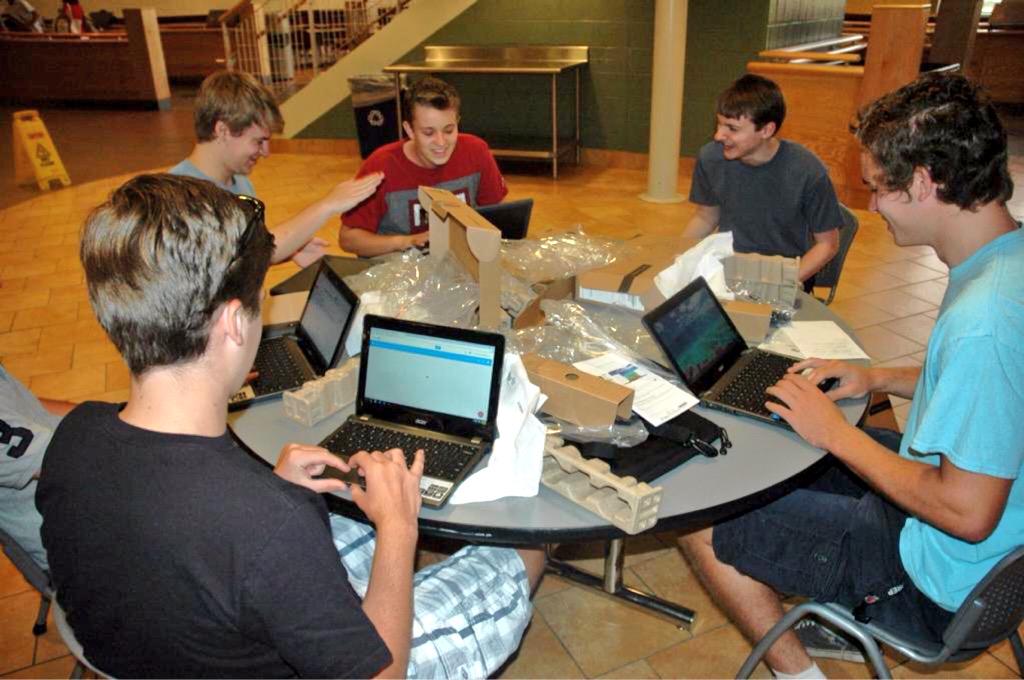St. Joseph’s Prep, a private Catholic school for boys on Girard Avenue, is handing out Chromebooks to its whole student body — nearly 900 students — this week.
It’s another local school that’s jumping on the Chromebook bandwagon: 175 District schools opted in to use Chromebooks in the last year. Their price (roughly $300) is one of the biggest selling points. Some of the biggest District success stories, like Science Leadership Academy and The Workshop School, as well as new experimental schools like The U School, have chosen Chromebooks over other laptops.
The main difference between the initiatives at St. Joseph’s Prep and District schools? Funding.
St. Joseph’s is adding a $185 annual technology fee to the school’s $21,550 tuition to pay for the Chromebooks, which will be owned by the school and lent out to the students. That fee pays for the hardware, as well as the warranty, software and infrastructure. Originally, the school considered having parents buy the Chromebooks directly, said Colleen Conmy McManus, Instructional Technology Specialist, through a spokesman.
Philly schools that can’t pass costs on to parents have relied on grants to fund Chromebook programs, like Science Leadership Academy, which got a $620,000 grant from Dell in early 2014, North Philly’s Gesu School, which got a $50,000 grant from Fox & Roach Charities in the spring, and Graduate Hospital’s Chester A. Arthur, which got a $10,000 gift from law firm White & Williams in 2014.
There are other ways, too: Kensington CAPA used federal Title I dollars to invest in Chromebooks.
Why’d St. Joseph’s choose Chromebooks? The school liked their simplicity (they chose a model that was specifically made for schools) and that they stored information in the cloud, meaning students won’t lose any work if something happens to the laptop.
They also noted that the devices aren’t proprietary when it comes to repairs, so students could get trained in how to fix them and run their own help desk, spokesman Bill Avington wrote in an email. That’s opposed to Apple products, Avington said, which would have to be covered under Apple Care.
The school plans to use software called Hapara that allows them to see what’s on each student’s screen, Avington said.
The Chromebook project was two years in the making.
“It is part of our Jesuit culture to be reflective and thoughtful in our actions, and so we took the time we felt was needed to research, discuss, plan, test and discuss some more,” reads the school’s webpage about the effort.
Join our growing Slack community
Join 5,000 tech professionals and entrepreneurs in our community Slack today!
Donate to the Journalism Fund
Your support powers our independent journalism. Unlike most business-media outlets, we don’t have a paywall. Instead, we count on your personal and organizational contributions.

National AI safety group and CHIPS for America at risk with latest Trump administration firings

Immigration-focused AI chatbot wins $2,500 from Temple University to go from idea to action

The good news hiding in Philly’s 2024 venture capital slowdown


